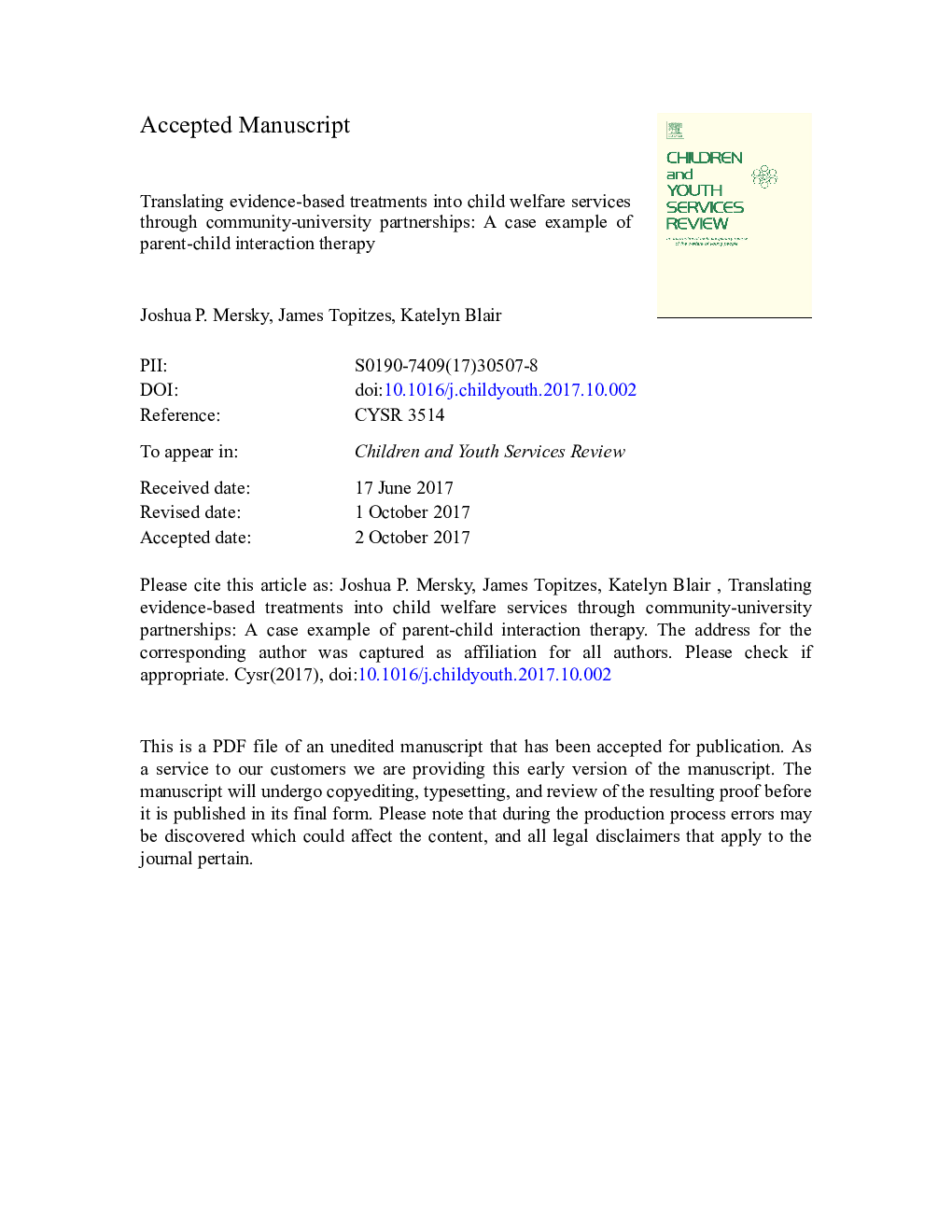| Article ID | Journal | Published Year | Pages | File Type |
|---|---|---|---|---|
| 4936211 | Children and Youth Services Review | 2017 | 33 Pages |
Abstract
Children served by the child welfare system count among society's most vulnerable members given their history of abuse, neglect, and other potentially traumatic experiences. Once they enter the system, however, these children seldom receive empirically validated interventions to mitigate the effects of trauma. This article highlights the promise of parent-child interaction therapy (PCIT), an evidence-based treatment (EBT) for trauma-exposed children in the child welfare system. Barriers to implementing PCIT and other EBTs in child welfare are discussed along with ways that community-university partnerships can help to navigate these barriers. Preliminary supporting evidence from a community-university partnership in Wisconsin is presented, followed by a set of recommendations for future work aimed at translating science into practice.
Related Topics
Health Sciences
Medicine and Dentistry
Perinatology, Pediatrics and Child Health
Authors
Joshua P. Mersky, James Topitzes, Katelyn Blair,
